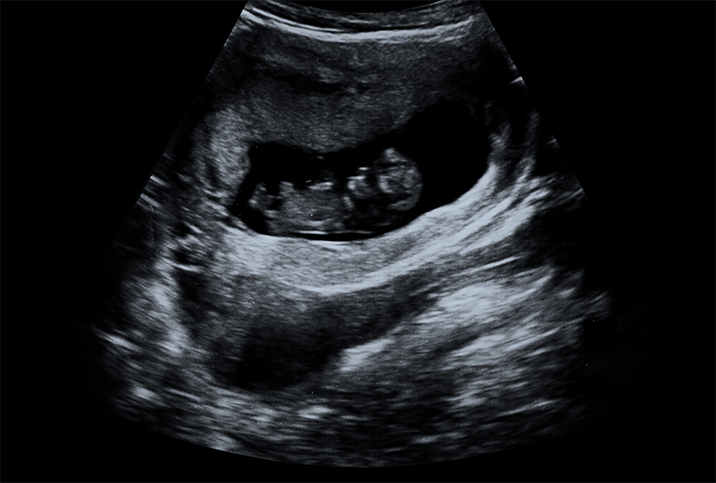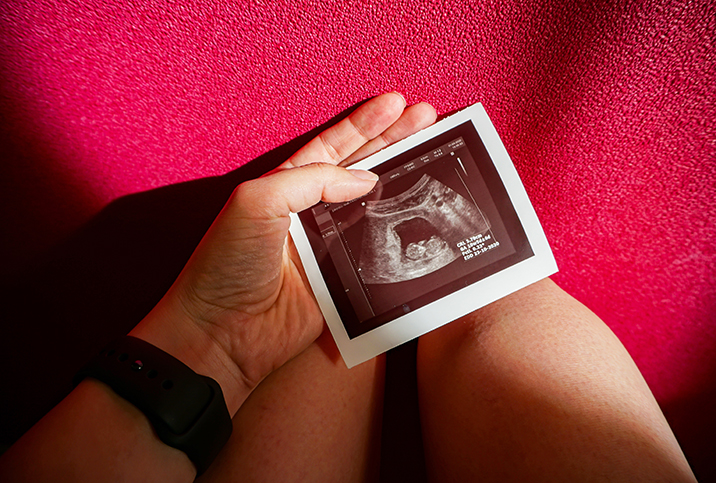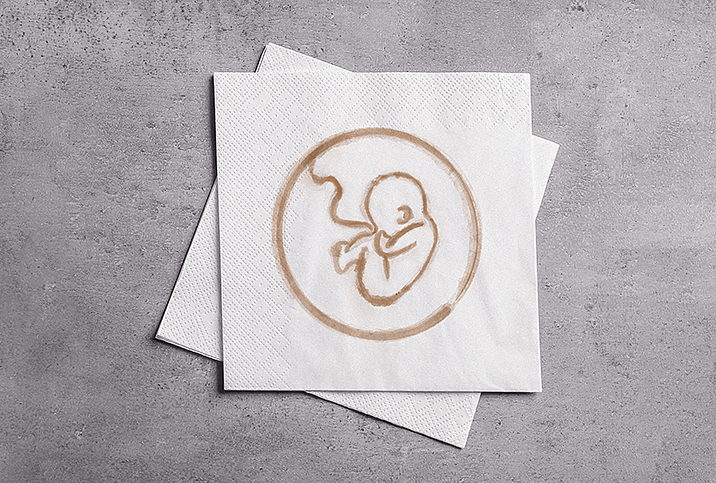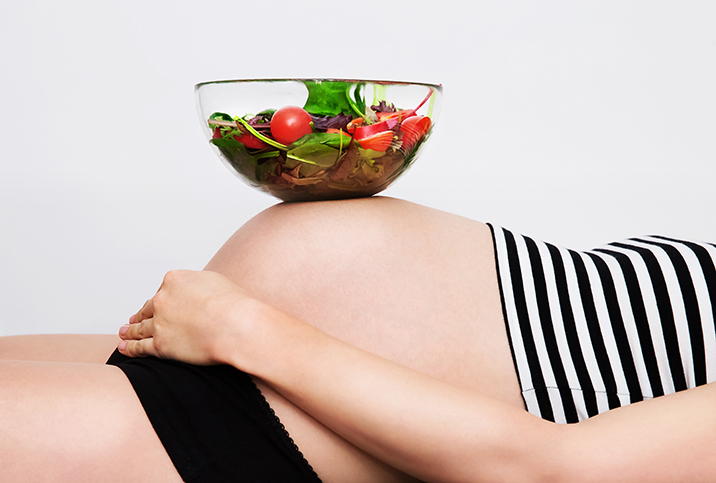The Grief and Joy of Pregnancy After a Miscarriage

My first pregnancy wasn't planned, but I never expected that at 21 years old, I'd be experiencing a miscarriage. Mine occurred during my first trimester at eight weeks. Before then, I assumed miscarriages were not a common occurrence, especially for young expecting mothers. For me and other women, this misconception is perpetuated because we don't really talk about miscarriages when they happen.
There was uncertainty in keeping my pregnancy, and to have the option taken from me abruptly only added more confusion to the grief that followed. I questioned whether my body was even capable of growing a life, and I wondered if I would face another miscarriage if I decided to have a family in the future.
Navigating the mental and physical tolls after experiencing a miscarriage can take away the joys of family planning. This type of pregnancy loss happens spontaneously, usually before the 20th week, but its effects are felt for some time afterward. Miscarriages can stir up an array of negative emotions, such as guilt, shame, inadequacy and fear of trying again.
Every woman's process of moving forward after having a miscarriage is different because every experience is different. However, for many women, miscarriage creates fears and anxiety for future pregnancies, dampening the excitement that's usually present during this time.
It's normal to question yourself and what your future may hold after such a gut-wrenching experience. Although miscarriages can feel like a solitary experience, you aren't alone, as many women have gone through the same thing. And the good news is having a miscarriage doesn't mean you can't go on to have a healthy pregnancy.
Understanding the 'why'
A miscarriage at any point of pregnancy can be distressing on the expecting mother, and usually leaves us with the question of "why"—why did this happen? The answer to this lies in embryonic development.
"Most [first trimester] miscarriages happen when there is a chromosomal or genetic problem with the embryo," explained Katharine O'Connell White, M.D., M.P.H., associate professor of obstetrics and gynecology at the Boston University School of Medicine and the vice-chair of academics in the OB-GYN department at Boston Medical Center.
She likens it to baking: When you bake a cake, the ingredients and process must be precise for it to turn out properly. It's the same with an embryo. Most of the time, the egg and sperm are perfectly healthy: You start with the right ingredients, but sometimes, "when they get together, there's some mistake that happens in the first phase as the embryo forms."
If there are mistakes early in development, our body will stop the pregnancy from going any further. Banafsheh Kashani, M.D., board-certified OB-GYN and infertility specialist, calls this the "checks and balance system." Our bodies will recognize these abnormalities, whether it's extra or missing chromosomes (mistakes with the ingredients) or another issue with the pregnancy (mistakes with the process). Miscarriages are the body's natural reaction to problems in pregnancy development.
Radio and TV Personality Jessica Hall opens up about her heartbreaking miscarriage and her journey to getting pregnant again. Watch the full interview here.
Miscarriage is more common than we think
Regardless of how little it is talked about, miscarriages are relatively common in pregnancy. According to Kashani, "On average, one in four women experience a miscarriage." This accounts for the total number of reported miscarriages. The numbers are presumably much higher as many women experience miscarriage before they even recognize they're pregnant, assuming it's their regular cycle. So odds are you've probably met someone who's had one before.
I realized the prevalence of miscarriages once I began opening up about my own to others. It was comforting to know other women could relate in some way, even if our experiences weren't exactly the same.
The odds are in your favor
Most women who have one miscarriage will likely not have another. "Only 5 percent of women will experience two or more miscarriages. And only 2 to 3 percent of women will experience three or more miscarriages," said White. The numbers are extremely low for recurrent miscarriages, meaning there should be little concern in moving forward with another pregnancy. However, it's understandable that, mentally, you may still hold onto that fear of trying again.
Moving forward after a miscarriage can take time and will look different for every woman. Some will be willing to jump in and try again, while others need space to grieve and work through their emotions.
Find support and resources
Having a strong support system is crucial to managing and processing the emotions—anxiety, depression, shame—that come after miscarriage. This support can be provided by your partner, family and friends, but sometimes additional help is needed. Thankfully, there are counselors who specialize in pregnancy loss and trauma. White herself experienced a miscarriage, and she went through a range of negative emotions, but going to therapy gave her an empathetic third party to help her process her difficult experience.
Grace Morningstar, certified birth doula (CAPPA), recommends support groups. "Talking to others who've miscarried babies helps dismantle some of the stigma and shame around it," she explained. Hearing stories from other women who've experienced miscarriages and had successful pregnancies afterward can provide hope for those struggling with moving forward. Holistic care is another avenue she recommends, as these practitioners focus on addressing "the physical, emotional and spiritual aspects of miscarriage."
After her miscarriage, Morningstar received craniosacral therapy—a type of bodywork that relieves tension in the muscles and central nervous system—which helped release tension stored within her body.
Take preventive measures when possible
Wanting to do everything in your power to have a successful pregnancy is normal. Luckily, there are a few ways to decrease your chances of having a miscarriage. "I tell my patients to try to avoid any nonprescribed substances before and during the pregnancy. This [includes] alcohol, tobacco, vaping, marijuana and so on," said White. She also says potential mothers should work with their doctors to maximize their health during this time. "If there's a chronic medical condition, try to get it as stable as possible. And if they're on prescription medication, switch to one that's safe for pregnancy."
So long as it's safe, the right time to try again is when both you and your partner are comfortable moving forward in expanding your family.
Another way to maximize your health is by maintaining a healthy lifestyle. According to Kashani, having a diet "low in processed foods and caffeine, with a focus on whole foods, fruits, vegetables and organic food" is incredibly beneficial. She recommends supplements with the coenzyme Q10 (CoQ10), as they help improve egg quality. Taking prenatal vitamins can improve your odds as well.
Find the best time to try again
Depending on the trimester it occurs, and whether you had medical assistance in your miscarriage, such as dilation and curettage or C-section, your body may need more time to physically recover before a pregnancy attempt can occur. In these special cases, it's best to speak with your doctor about when it'll be safe to conceive again.
After a miscarriage, the body needs time to readjust its hormone levels to resume a normal ovulation cycle. It can take up to one complete menstrual cycle for hormone regulation to return to normal, though some women can become pregnant before then. However, this doesn't mean you have to wait to start trying again—you can resume having sex as early as you'd like. Recent studies have shown there are no benefits in waiting.
According to White, "When pregnancy hormones are still present in the blood, it's unlikely that you'll ovulate. It's the body's way of not letting you get pregnant until it's ready [to conceive] again…so don't feel like you need to hold back or wait for signs."
So long as it's safe, the right time to try again is when both you and your partner are comfortable moving forward in expanding your family.
Advice for your 'rainbow' pregnancy
Kashani and White both recommend being cleared by your physician to ensure no special circumstances would delay pregnancy. Seek consultation from your OB-GYN when you feel something is wrong—and don't feel bad about it. Addressing your concerns will help alleviate potential areas of stress for you.
"It's normal to feel incredibly stressed and anxious with the [following] pregnancy. But try to focus your energy on being optimistic, as your next pregnancy is likely to be successful," suggested Kashani. Morningstar recommends a mindfulness practice during pregnancy because it "brings you back to the present moment."
Navigating pregnancy after a miscarriage can be difficult, and, as White said, it's important to recognize that "happiness and joy about a new pregnancy can coexist with the grief of your pregnancy loss."


















